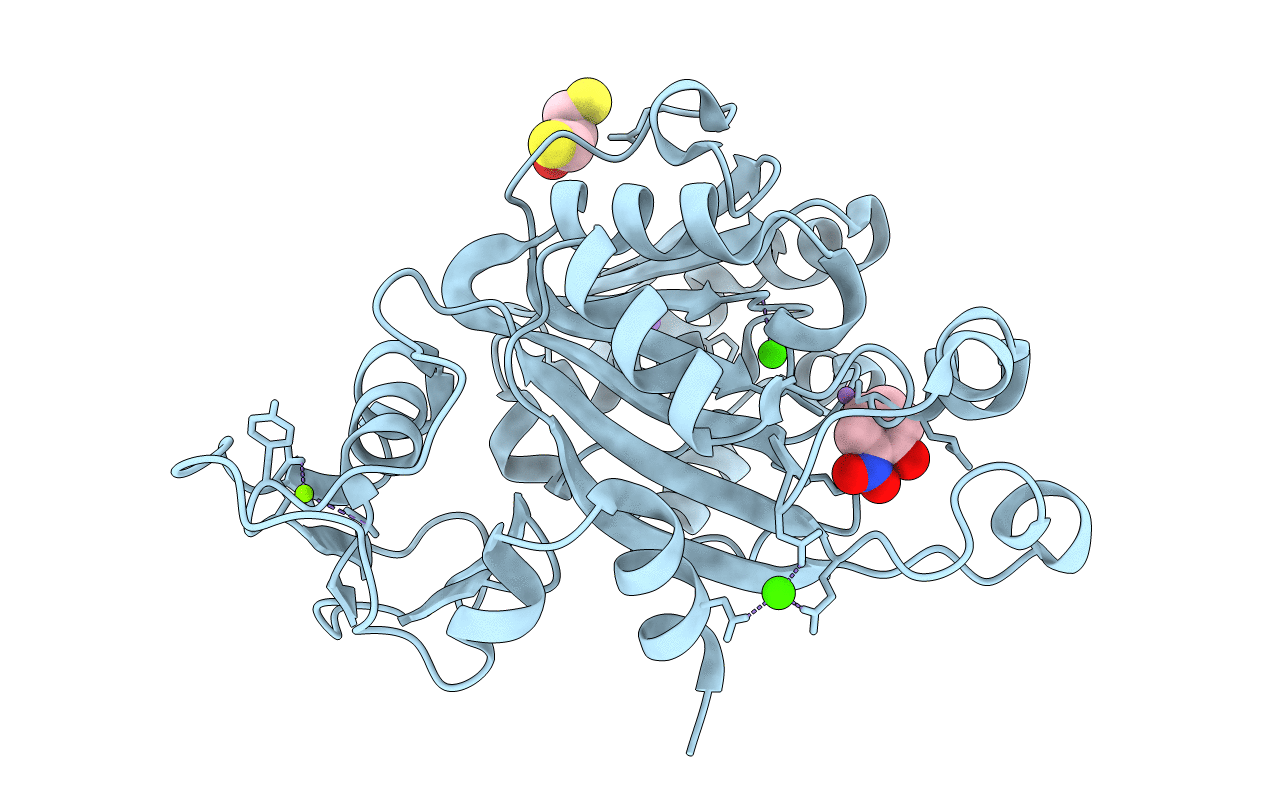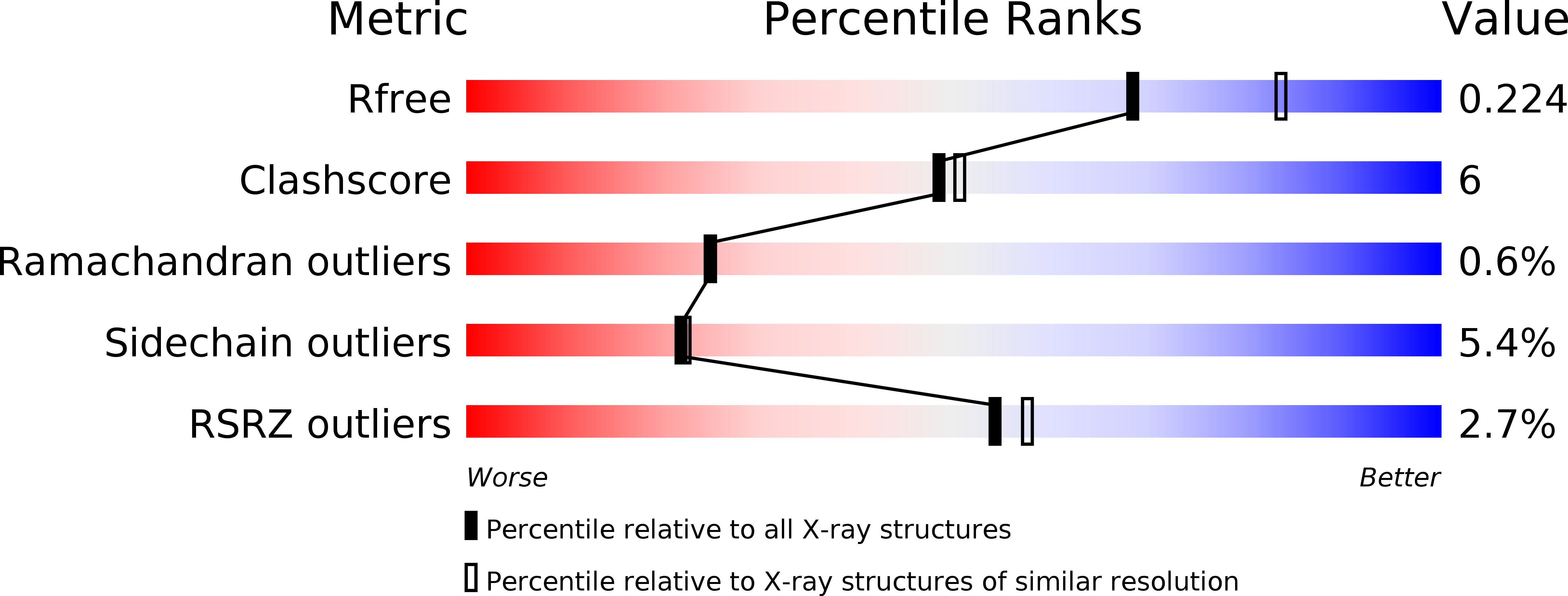
Deposition Date
2014-11-10
Release Date
2014-12-10
Last Version Date
2024-10-16
Entry Detail
PDB ID:
4RSR
Keywords:
Title:
ArsM arsenic(III) S-adenosylmethionine methyltransferase with trivalent phenyl arsencial derivative-Roxarsone
Biological Source:
Source Organism(s):
Cyanidioschyzon sp. (Taxon ID: 610260)
Expression System(s):
Method Details:
Experimental Method:
Resolution:
2.25 Å
R-Value Free:
0.22
R-Value Work:
0.17
R-Value Observed:
0.17
Space Group:
C 1 2 1


